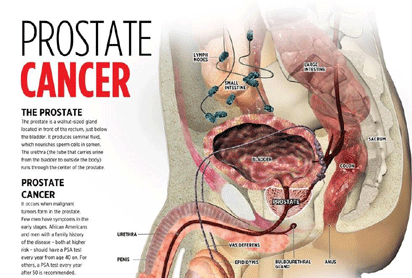Prostate cancer: How Transatlantic Consortium gives hope to Black patients

By Chioma Obinna
When Prof. Folakemi Odedina looks back on the early days of the Prostate Cancer Transatlantic Consortium (CAPTC), she remembers sleepless nights, personal sacrifices, and funding research out of her own pocket.
Twenty years later, the Professor of Hematology and Oncology at Mayo Clinic is leading one of the most influential collaborations in the world dedicated to ending prostate cancer disparities among men of African ancestry.
“It started from personal sacrifices,” she recalled.
“My husband and I were actually using my personal money to fund the research in Africa. But through the grace of God, those small beginnings grew into millions of dollars in biomedical research, clinical trials, and survivor support.”
Formed in 2005, CAPTC has grown from a handful of scientists and clinicians into a global network of researchers, survivors, and advocates working across North America, Europe, the Caribbean, and Africa.
Today, it is credited with groundbreaking research on genetics, prevention, and treatment tailored to Black men.
Silent killer
For decades, prostate cancer has been a silent killer in Black communities. Unlike HIV or COVID-19, it rarely makes headlines, yet it devastates families when a father, husband, or brother is lost.
As CAPTC looks ahead, Odedina said they are preparing younger scientists, clinicians, and advocates to carry the torch through “CAPTC Next Generation.”
She said the goal is to build a pipeline of African experts who will not just participate but lead global cancer research.
“The question is always, what keeps you going? For me, it’s going into a community, returning a year later, and finding men lost to prostate cancer. Behind every number is a person, a family, a community. If there’s one more thing we can do to stop that loss, then we owe it to them.”
For Dr. Ebenezer Nkom, a Consultant Surgeon and CAPTC member: “It’s a silent killer of men of a particular age group. When the man goes, you scatter the family somehow. But if you get it early, the chances of cure are real. That’s why I stayed with this consortium. They brought prostate cancer to the burner for us, and men are coming out to seek help.”
This awareness is saving lives. Survivors now stand alongside doctors as advocates, encouraging men to test early and fight stigma.
A survivor’s story
Captain Yahaya Ayinde Yahaya, a 73-year-old retired soldier, is one such survivor. Diagnosed after a long and costly process of scans, biopsies, and MRIs, he chose faith and courage over fear.
“As a soldier, I am trained to die and to kill,” he said.
“When I learned I had prostate cancer, I accepted my fate. But joining Professor Odedina’s group turned me into an advocate. Today, people even call me a medical doctor on prostate cancer because I can discuss the terminology.”
In his community of Igbogbo, Yahaya organised free screenings for hundreds of men and women, sparing them tests that could have cost up to N30,000 in private hospitals.
Speaking to Good Health Weekly, “I feel achieved,” he said proudly.
“If I can take CAPTC to my people, then I have given back.”
Beyond cutting-edge research, CAPTC’s strength lies in community outreach. Through the African Behavioral Research Centre, it distributes healthy groceries, educates families on nutrition, and connects survivors with support networks.
For Prof. Odedina, survivors are equal partners: “Doctors are beside the bed, scientists are in the lab, but survivors are in the bed. They truly understand the disease. Their voices shape our research and solutions.”
This inclusive model is now being replicated in cancer centres worldwide.
At CAPTC’s 20th anniversary celebration, Prof. Clayton Yates of Johns Hopkins School of Medicine praised the consortium’s achievements:
“CAPTC established the first prostate cancer genome sequencing for African American men. That discovery is now shaping therapies tailored to our communities. But what’s unique is the environment here; no matter where you come from, you feel at home. That’s why this has lasted 20 years.”
Also speaking, the African investigator, Prof. Solomon Rotimi of Covenant University, said the mission is also about independence. “Clinical trials must be done at home,” he explained. “You cannot enter your house through another man’s gate. Our genetics, our diets, our environment they are different. If we don’t test treatments here, we won’t know how they truly work for our people.”
Twenty years on, CAPTC is no longer just a consortium. It is a family bound by a mission: that prostate cancer, especially among Black men, is not a death sentence but a solvable disease.
The post Prostate cancer: How Transatlantic Consortium gives hope to Black patients appeared first on Vanguard News.







